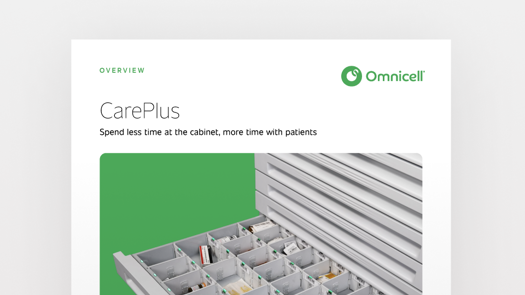
Brochure
CarePlus
98 Sorted By Most Recent

Brochure
CarePlus
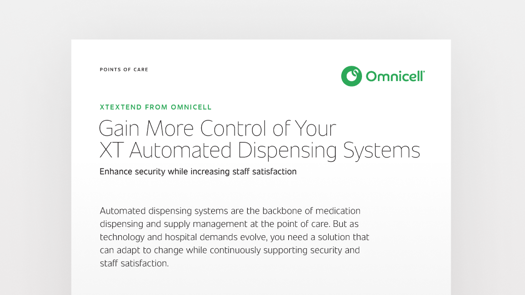
Brochure
XTExtend
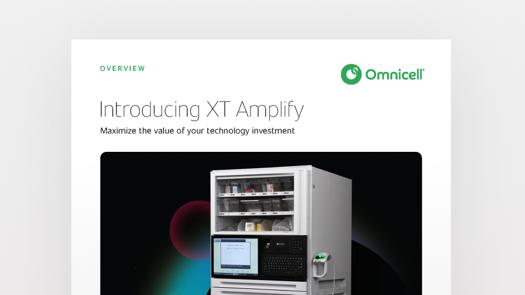
Brochure
XT Amplify

The Future of IV Robotics: IVX Station

Brochure
XT Automated Dispensing System Overview
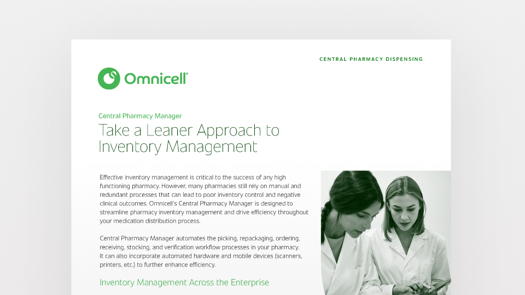
Brochure
Central Pharmacy Manager
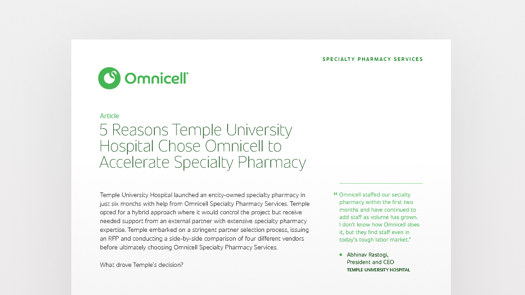
Article
5 Reasons Temple University Hospital Chose Omnicell to Accelerate Specialty Pharmacy
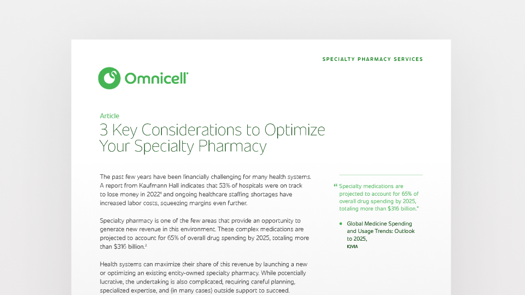
Article
3 Key Considerations to Optimize Your Specialty Pharmacy

Brochure
XT Anesthesia Workstation

Brochure
IVX Station
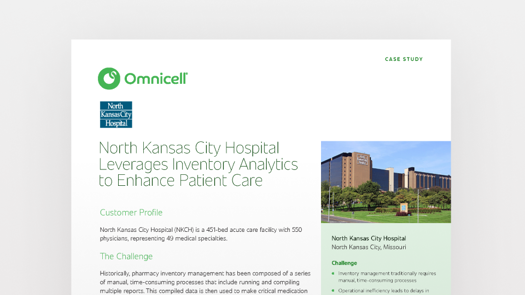
Case Study
North Kansas City Hospital Leverages Inventory Analytics to Enhance Patient Care

Article
Inarguable Math: 3 Financial Benefits of IV Compounding Robots